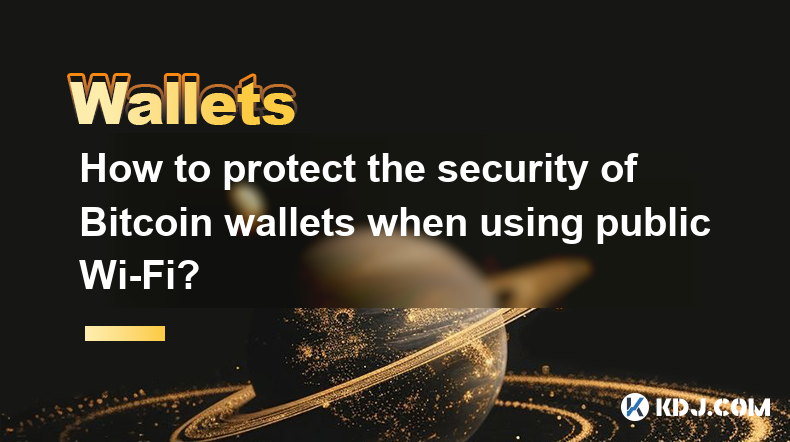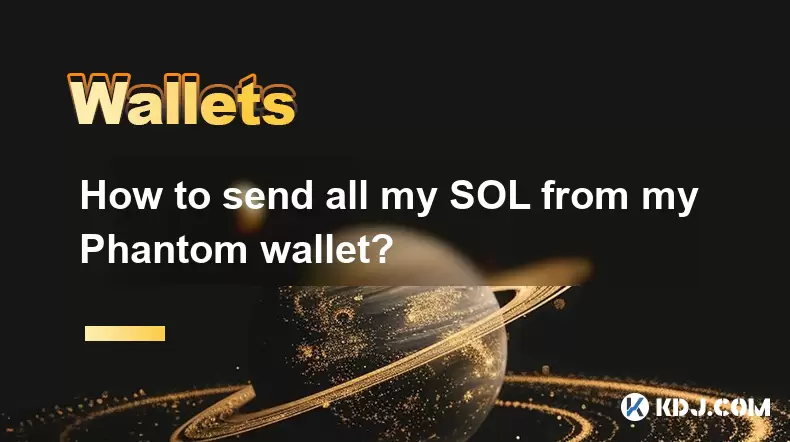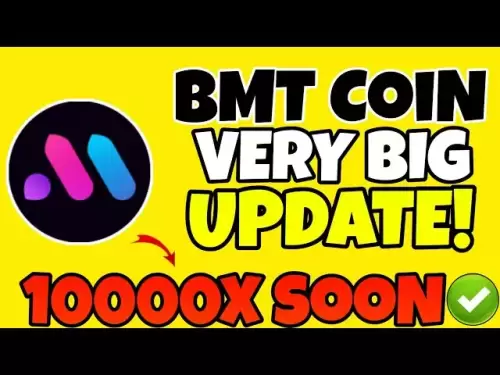-
 Bitcoin
Bitcoin $108,562.4295
0.46% -
 Ethereum
Ethereum $2,533.9553
1.52% -
 Tether USDt
Tether USDt $1.0002
-0.01% -
 XRP
XRP $2.2542
2.23% -
 BNB
BNB $662.4567
1.48% -
 Solana
Solana $151.4114
3.48% -
 USDC
USDC $0.9999
0.00% -
 TRON
TRON $0.2860
0.91% -
 Dogecoin
Dogecoin $0.1685
3.72% -
 Cardano
Cardano $0.5809
1.63% -
 Hyperliquid
Hyperliquid $39.2916
1.85% -
 Sui
Sui $2.8874
0.85% -
 Bitcoin Cash
Bitcoin Cash $496.5801
2.72% -
 Chainlink
Chainlink $13.3582
2.48% -
 UNUS SED LEO
UNUS SED LEO $9.0279
0.07% -
 Avalanche
Avalanche $18.0773
2.30% -
 Stellar
Stellar $0.2426
3.05% -
 Toncoin
Toncoin $2.9086
6.01% -
 Shiba Inu
Shiba Inu $0.0...01170
2.97% -
 Hedera
Hedera $0.1587
3.47% -
 Litecoin
Litecoin $87.4596
1.13% -
 Monero
Monero $317.0425
0.73% -
 Polkadot
Polkadot $3.3778
1.90% -
 Dai
Dai $0.9999
-0.01% -
 Ethena USDe
Ethena USDe $1.0001
-0.01% -
 Bitget Token
Bitget Token $4.4095
0.63% -
 Uniswap
Uniswap $7.3593
6.80% -
 Pepe
Pepe $0.0...09910
3.64% -
 Aave
Aave $274.7388
2.68% -
 Pi
Pi $0.4607
0.48%
How to protect the security of Bitcoin wallets when using public Wi-Fi?
Secure your Bitcoin wallet on public Wi-Fi using a VPN, 2FA, and a hardware wallet if possible. Regular updates, caution against phishing, and monitoring your activity are crucial for preventing theft.
Mar 21, 2025 at 07:08 pm

Key Points:
- Never access your Bitcoin wallet on public Wi-Fi without employing robust security measures.
- Use a VPN to encrypt your internet traffic and mask your IP address.
- Enable two-factor authentication (2FA) on your wallet for enhanced security.
- Avoid using web-based wallets on public Wi-Fi; opt for hardware wallets instead.
- Regularly update your wallet software and operating system to patch security vulnerabilities.
- Be cautious of phishing scams and only access your wallet through trusted links.
- Monitor your wallet activity regularly for any unauthorized transactions.
How to Protect the Security of Bitcoin Wallets When Using Public Wi-Fi?
Public Wi-Fi networks are notoriously insecure. They're often unencrypted, making your internet activity vulnerable to eavesdropping. This poses a significant risk when accessing your Bitcoin wallet, as malicious actors could intercept your login credentials or transaction details. Therefore, using extra caution is paramount.
Using a Virtual Private Network (VPN) is crucial. A VPN encrypts your internet traffic, creating a secure tunnel between your device and the VPN server. This prevents others on the same network from seeing your online activities, including your Bitcoin wallet access. Choose a reputable VPN provider with strong encryption protocols.
Two-factor authentication (2FA) adds an extra layer of security. This requires a second form of verification, such as a code from an authenticator app or a security key, in addition to your password. Even if someone obtains your password, they'll still need access to your 2FA device to gain control of your wallet. Enable this feature on all your wallets whenever possible.
Web-based wallets are convenient but inherently riskier than offline solutions. Public Wi-Fi amplifies these risks. Consider using a hardware wallet instead. Hardware wallets store your private keys offline, making them significantly more secure against hacking attempts, even on compromised networks.
Keeping your software up-to-date is vital. Wallet providers regularly release updates that patch security vulnerabilities. Outdated software can leave your wallet exposed to known exploits. Ensure your wallet software and operating system are always running the latest versions.
Phishing is a common attack vector. Be wary of suspicious emails, links, or websites that claim to be associated with your Bitcoin wallet. Never enter your login credentials on untrusted sites. Always verify the website's authenticity before proceeding.
Regularly monitor your wallet activity. Check your transaction history frequently for any unauthorized withdrawals or suspicious activity. Immediate detection of unauthorized access can help you mitigate potential losses.
Choosing the Right Wallet for Public Wi-Fi Use:
While no wallet is perfectly secure on public Wi-Fi, some are inherently safer than others. Hardware wallets like Ledger and Trezor offer superior protection because your private keys never leave the device. They are significantly less vulnerable to attacks compared to software wallets.
Software Wallet Security on Public Wi-Fi:
If you must use a software wallet on public Wi-Fi, prioritize wallets with strong security features, such as multi-signature functionality. This requires multiple approvals for each transaction, making unauthorized access much more difficult. However, even with these features, using a VPN and 2FA remains essential.
Avoiding Common Mistakes:
- Using free or unsecured public Wi-Fi: Always prioritize secure networks or use a VPN.
- Ignoring software updates: Keeping your software up-to-date is crucial for security.
- Falling for phishing scams: Verify the legitimacy of websites and emails before clicking any links.
- Using weak passwords: Choose strong, unique passwords for your Bitcoin wallet.
- Neglecting 2FA: Enabling 2FA significantly enhances your wallet's security.
Frequently Asked Questions:
Q: Is it safe to check my Bitcoin balance on public Wi-Fi?
A: Checking your balance is less risky than making transactions, but it's still advisable to use a VPN to protect your IP address and encrypt your connection.
Q: Can I use a mobile Bitcoin wallet on public Wi-Fi?
A: Yes, but only with a VPN and 2FA enabled. Choose a reputable wallet with a strong security record.
Q: What happens if my Bitcoin wallet is compromised on public Wi-Fi?
A: Your Bitcoin could be stolen. Act quickly to report the incident to the relevant authorities and your wallet provider.
Q: Are hardware wallets completely safe on public Wi-Fi?
A: Hardware wallets are significantly safer than software wallets, even on public Wi-Fi, as the private keys remain offline. However, physical theft is still a risk.
Q: How often should I update my Bitcoin wallet software?
A: Check for updates regularly, ideally as soon as they are released by your wallet provider. Security patches often address critical vulnerabilities.
Disclaimer:info@kdj.com
The information provided is not trading advice. kdj.com does not assume any responsibility for any investments made based on the information provided in this article. Cryptocurrencies are highly volatile and it is highly recommended that you invest with caution after thorough research!
If you believe that the content used on this website infringes your copyright, please contact us immediately (info@kdj.com) and we will delete it promptly.
- Litecoin Breakout Watch: What Traders Need to Know Now
- 2025-07-06 16:50:13
- Bitcoin, Solana, Ethereum: Decoding the Latest Buzz on the Blockchain
- 2025-07-06 16:50:13
- Widnes Resident's 50p Could Be Your Ticket to Easy Street: Rare Coin Mania!
- 2025-07-06 16:55:13
- Bitcoin, Solaris Presale, and Token Rewards: What's the Buzz?
- 2025-07-06 16:55:13
- Ethereum Under Pressure: Price Drop Amid Global Uncertainties
- 2025-07-06 17:00:13
- XRP, SEC Case, and Prosperity: A New Era for XRP Holders?
- 2025-07-06 17:10:13
Related knowledge

How to cancel a pending transaction in Phantom wallet?
Jul 03,2025 at 07:21pm
Understanding Pending Transactions in Phantom WalletA pending transaction in the Phantom wallet occurs when a user initiates a transfer or interaction with the Solana blockchain, but it hasn't yet been confirmed by the network. This can happen due to various reasons such as low transaction fees, network congestion, or incorrect gas settings. It's import...

How to see the estimated value of my tokens in Phantom wallet?
Jul 04,2025 at 12:21am
What is Phantom Wallet?Phantom wallet is one of the most popular cryptocurrency wallets designed for the Solana blockchain. It allows users to store, send, receive, and manage various tokens built on Solana, including SPL tokens and NFTs. The wallet offers a user-friendly interface, making it accessible for both beginners and advanced users in the crypt...

How to lock my Phantom wallet extension?
Jul 03,2025 at 11:14am
What Is the Phantom Wallet and Why Lock It?The Phantom wallet is a popular non-custodial cryptocurrency wallet designed for interacting with the Solana blockchain. Supporting both browser extensions and mobile apps, Phantom allows users to store, send, receive, and stake SOL tokens, as well as interact with decentralized applications (dApps). Securing y...

Does Phantom wallet offer two-factor authentication (2FA)?
Jul 03,2025 at 09:00am
Understanding Phantom Wallet and Its Security FeaturesPhantom wallet is a widely used non-custodial cryptocurrency wallet that supports the Solana blockchain. It allows users to store, send, receive, and interact with decentralized applications (dApps) seamlessly. As security is a top priority for any crypto wallet user, security features like two-facto...

How to send all my SOL from my Phantom wallet?
Jul 06,2025 at 10:00am
Preparing to Send SOL from Your Phantom WalletBefore initiating any transaction, it is crucial to ensure that your Phantom wallet is fully set up and connected to the correct network. Phantom supports multiple networks, but for sending SOL, you must be on the Solana blockchain. Confirm this by checking the network indicator in the top-right corner of th...

What is "rent" on Solana and how does it affect my Phantom wallet?
Jul 02,2025 at 08:35pm
Understanding 'Rent' on SolanaIn the context of Solana, the term 'rent' refers to a storage fee that users pay for maintaining data on the blockchain. Unlike Ethereum, where storage costs are paid once via gas fees during contract deployment, Solana implements a recurring cost model to ensure efficient usage of network resources. This means that any acc...

How to cancel a pending transaction in Phantom wallet?
Jul 03,2025 at 07:21pm
Understanding Pending Transactions in Phantom WalletA pending transaction in the Phantom wallet occurs when a user initiates a transfer or interaction with the Solana blockchain, but it hasn't yet been confirmed by the network. This can happen due to various reasons such as low transaction fees, network congestion, or incorrect gas settings. It's import...

How to see the estimated value of my tokens in Phantom wallet?
Jul 04,2025 at 12:21am
What is Phantom Wallet?Phantom wallet is one of the most popular cryptocurrency wallets designed for the Solana blockchain. It allows users to store, send, receive, and manage various tokens built on Solana, including SPL tokens and NFTs. The wallet offers a user-friendly interface, making it accessible for both beginners and advanced users in the crypt...

How to lock my Phantom wallet extension?
Jul 03,2025 at 11:14am
What Is the Phantom Wallet and Why Lock It?The Phantom wallet is a popular non-custodial cryptocurrency wallet designed for interacting with the Solana blockchain. Supporting both browser extensions and mobile apps, Phantom allows users to store, send, receive, and stake SOL tokens, as well as interact with decentralized applications (dApps). Securing y...

Does Phantom wallet offer two-factor authentication (2FA)?
Jul 03,2025 at 09:00am
Understanding Phantom Wallet and Its Security FeaturesPhantom wallet is a widely used non-custodial cryptocurrency wallet that supports the Solana blockchain. It allows users to store, send, receive, and interact with decentralized applications (dApps) seamlessly. As security is a top priority for any crypto wallet user, security features like two-facto...

How to send all my SOL from my Phantom wallet?
Jul 06,2025 at 10:00am
Preparing to Send SOL from Your Phantom WalletBefore initiating any transaction, it is crucial to ensure that your Phantom wallet is fully set up and connected to the correct network. Phantom supports multiple networks, but for sending SOL, you must be on the Solana blockchain. Confirm this by checking the network indicator in the top-right corner of th...

What is "rent" on Solana and how does it affect my Phantom wallet?
Jul 02,2025 at 08:35pm
Understanding 'Rent' on SolanaIn the context of Solana, the term 'rent' refers to a storage fee that users pay for maintaining data on the blockchain. Unlike Ethereum, where storage costs are paid once via gas fees during contract deployment, Solana implements a recurring cost model to ensure efficient usage of network resources. This means that any acc...
See all articles

























































































